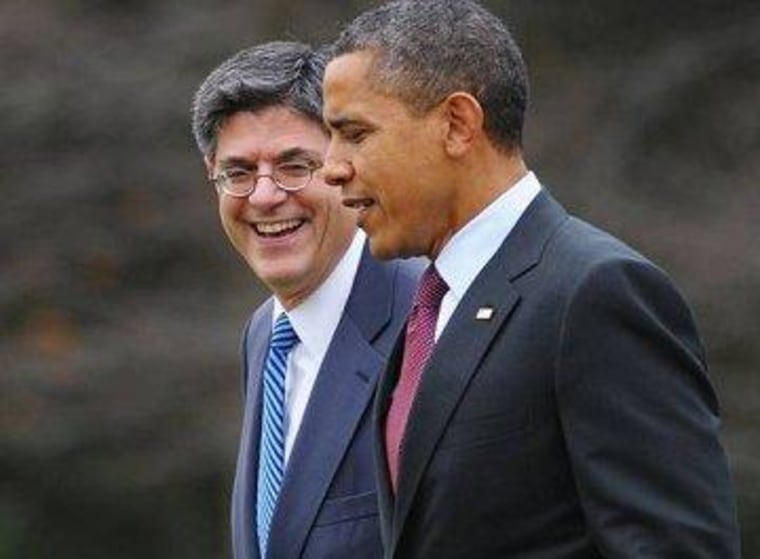Given how contentious the process was surrounding Defense Secretary Chuck Hagel's confirmation process, it was easy to forget that Jack Lew's Treasury Secretary nomination was advancing at roughly the same time -- and Senate Republicans don't like him, either. Indeed, in early January, some GOP senators began criticizing Lew's nomination before it was even announced.
But with his detractors unable to generate any meaningful controversies, and with Hagel drawing the most fire, Lew managed to earn confirmation late yesterday without much trouble.
The Senate confirmed Jacob J. Lew to be Treasury secretary Wednesday, despite opposition from some GOP senators who criticized Lew's part in budget negotiations and questioned his personal finances and connections with Wall Street.Senators voted 71-26 to confirm Lew, President Barack Obama's choice to succeed former Treasury Secretary Timothy F. Geithner. The votes against Lew came from Republicans, including Minority Leader Mitch McConnell of Kentucky, and Vermont Independent Bernard Sanders.
The New York Times said Lew's relatively smooth confirmation process offered a look at the Senate in "a more affable mode." I think that's correct, but it's a reminder of how far expectations have fallen.
Consider it this way: President Obama nominated a qualified official to a key cabinet post; the nominee had already been subjected to Senate confirmation processes before -- five times -- and had never received an opposition vote; and the nominee's detractors couldn't find anything especially wrong with him. But when it was time for a vote, 25 of the Senate's 45 Republicans opposed the nomination anyway.
In other words, when the Senate is in an "affable" mood, and a cabinet nominee is considered uncontroversial, most Senate Republicans still vote no. And thanks to the soft bigotry of low expectations, many -- including me -- consider this a great example of the institution working in a reasonably sensible way, at least by 2013 standards.
Consider this paragraph from the Times piece:
The vote meant that for the moment at least, the Senate returned to its traditional role of affording the president deference in selecting his cabinet. Historically, the Treasury secretary position has been an easy one for presidents to fill, with nominees typically receiving unanimous support from the Senate.
Again, all of this is entirely accurate, but let's not lose sight of the details: even when the Senate adopts "its traditional role of affording the president deference in selecting his cabinet," more than half of the Senate Republican caucus votes to reject a qualified, uncontroversial nominee.
In the not-too-distant past, Lew would have been approved in a more lopsided vote, but in today's political climate, with Republicans reflexively opposing almost everything Obama wants, 70 is the new 90.
